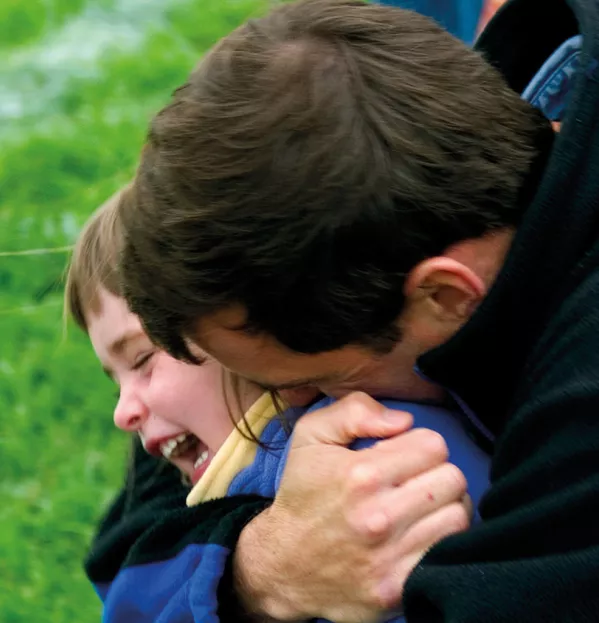The very first question to come from a member of the public at a Downing Street coronavirus briefing, on Monday, was not what people were expecting.
Lynn from Skipton didn’t want to know about possible job losses, the lack of PPE or when there would be a vaccine. What she wanted to know was whether, after the government’s five tests for easing restrictions had been met, she would be able to hug her grandchildren again.
It was a simple, very human question that stopped many in their tracks. The focus thus far has been, rightly, on the science - on the data, the statistics, on the capacity of the health service to cope. There has been little looking at us as human beings and how weeks of social deprivation could affect us.
Even in education, all the emphasis has been on the practical: how to teach key workers’ children in school and how to deliver learning to the vast majority of the children now at home.
But education has never been about just education. There’s so much more to it than delivering information to willing and sometimes not so willing recipients. It’s about making connections, it’s about forging relationships and it’s about love.
It’s not only Lynn from Skipton who wants a warm embrace; contact is important for all of us. So much of what we do is about touch - to guide, to reassure and to comfort.
And it’s particularly important for young children. It’s only when children feel secure in their relationships with their teachers and caregivers can they start to learn. But this brings with it big challenges. Sensitivities around contact between caregivers and young children in early years means that professionals need to find ways in which they can safely express the caring behaviours that their role demands of them.
It’s what Jools Page, senior early years lecturer at the University of Brighton, calls “professional love”.
Her work in looking at how this operates alongside a safeguarding policy may give us some help into how to respond in these times when a hug or any social contact is not only inappropriate, it’s just not possible. We have to find other ways to “show a child they are loved and worthy of being loved”. This could be a smile, a tilt of the head, some kind words or a warm gesture.
It’s these same cues that all of us are desperately trying to seek out on Zoom calls. It’s why we feel so tired. We’re all looking for that hint of encouragement, that smile of reassurance and that look of understanding and compassion. Constantly scanning all those faces is really hard work.
This lack of contact, this social deprivation will have an effect on everyone’s mental health. That much we know from the huge body of work already conducted on this. What we don’t know is how much of a lasting effect it will have, especially on children.
As adults, in the absence of real contact in our lives, we look even more for alternatives, and we turn to all things that make us feel, that make us human. Music, literature, doing things with our hands such as sewing, baking, making things, all these things have come to the fore in this crisis. But children have not yet acquired those skills, or developed coping mechanisms and built up the resilience that is needed.
What children need is often exactly what Lynn from Skipton needs - in fact, it’s what we all need, despite our attempts at finding substitutes. There’s nothing more human than a hug - and we have been denied that at the time we need it most.
@AnnMroz
This article originally appeared in the 1 May 2020 issue under the headline “Embrace the fact that education is about more than just education”
